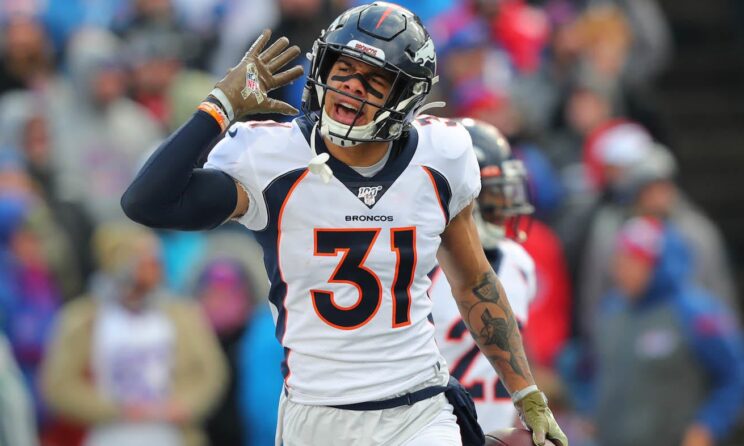
Jamal Adams recently resurfaced as the newest addition to the Tennessee Titans, marking the next chapter for a player once considered one of the NFL’s best safeties. His deal was arguably just as notable for reigniting questions about a fellow free agent: Why, exactly, is Justin Simmons still available?
Released by the Denver Broncos in a cost-cutting move this March, Simmons doesn’t just have the name recognition of Jamal Adams. He’s also got the resume to back it up. Two years removed from leading the NFL in interceptions, fresh off another Pro Bowl nod, he’s easily one of the most accomplished veterans still unsigned ahead of the 2024 season. So why is he still seeking a new team?
It’s not for a lack of interest in playing. Simmons has been open about wanting to “know where I’m going,” arguing he can be “the missing piece” for a contender. Which means the only logical explanation for his unexpectedly slow market is a glaring discrepancy between his perceived and actual value to other teams. In simpler terms: As is often the case in big-name free-agent negotiations, money is the likely culprit.
Consider the Brandon Aiyuk saga in San Francisco, where the emergent wide receiver has entertained trade rumors while seeking a lucrative extension from the 49ers. All indications are the 49ers want to keep Aiyuk long-term. All indications are Aiyuk wants to stay put long-term. Odds are they’ll even stay together, at least for 2024. Yet there’s been no known movement on the contract front because each side is entrenched in its demands: Aiyuk believes himself worthy of top-tier receiver money, and the 49ers have a designated price point in light of lofty commitments to peers like Christian McCaffrey and Deebo Samuel.
With Simmons, it’s not hard to connect similar dots. Three years ago, the ex-Broncos standout signed a four-year, $61 million extension averaging $15.25 million per year. Since…
..






